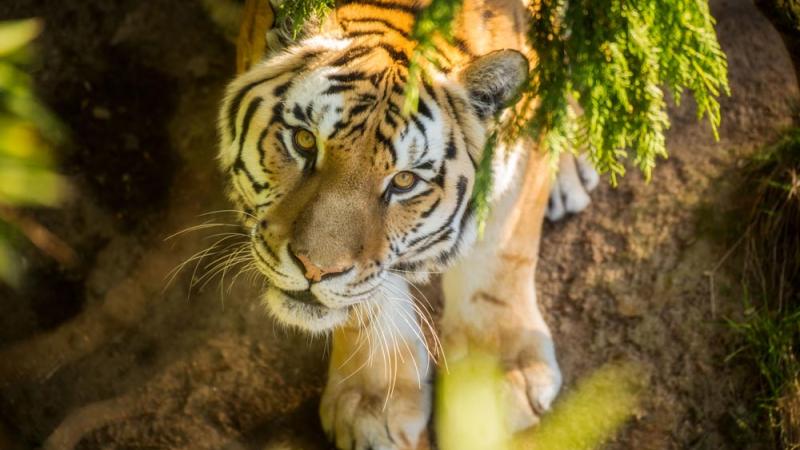Illegal wildlife trade

Ending the illegal wildlife trade
The Illegal wildlife trade is a global, multibillion-dollar industry involving the unlawful commerce in wild animals and plants. The trade exploits a wide range of species for a variety of uses, including pets, food, clothing, medicinal ingredients and ornamental purposes. Developed nations often drive the demand for wildlife products. As a result, the illegal wildlife trade now poses a threat to the survival of many imperiled species.
The Oregon Zoo believes that curbing the illegal wildlife trade within the U.S. will help protect endangered species worldwide.
- The illegal wildlife trade threatens thousands of wildlife species. Endangered animals and plants are often targeted for commerce because of their rarity and increased economic value.
- Some of the most iconic animals at the Oregon Zoo – including rhinos, tigers, cheetahs and elephants – represent species that are severely impacted by the illegal wildlife trade.
- Illegal wildlife trafficking is both a critical conservation concern and a threat to global security.
- The illegal wildlife trade threatens ecosystems and rural livelihoods – including those based on ecotourism.
- Some "products" of the illegal wildlife trade are well known, such as elephant ivory and rhino horns. Others, such as certain pet parrots, are lesser known yet equally detrimental to wildlife populations.
- Animal welfare is rarely a concern to those involved in the illegal wildlife trade. Live animals smuggled from one location to another often suffer horrendous conditions during transportation.
- Governments are ramping up efforts to stop wildlife crime in the U.S. and abroad. By supporting these efforts, individuals can take action to address illegal wildlife trade globally.
- Tourists may unknowingly participate in the illegal wildlife trade when they purchase souvenirs or gifts abroad. Therefore, raising public awareness about the problem may help reduce demand for illegal wildlife products.

